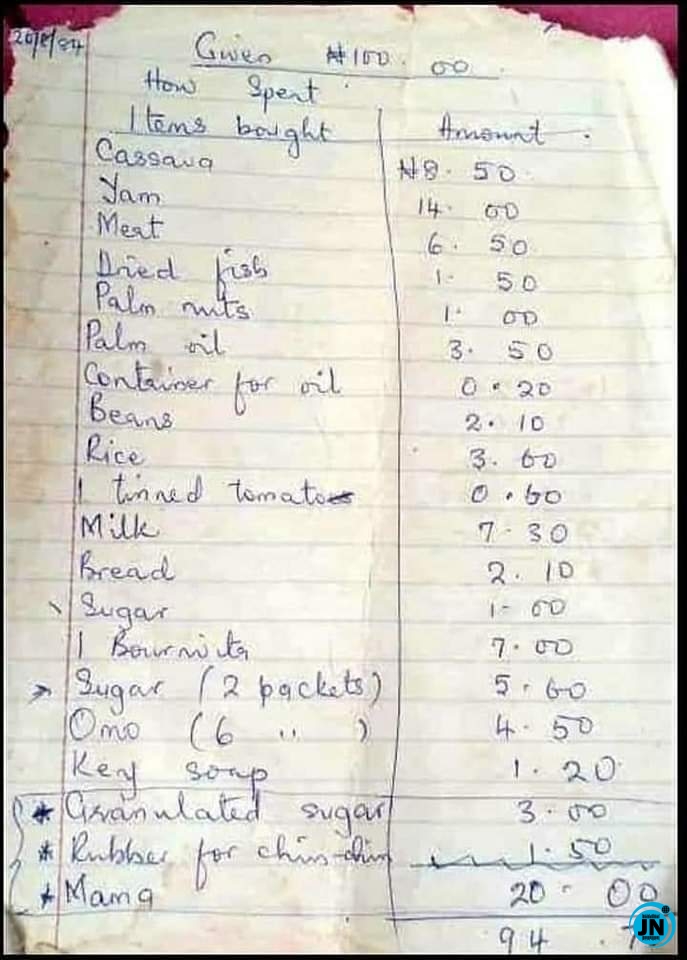A photo of a shopping list from the year 1984 has gained significant attention on social media, leaving netizens astonished at the prices recorded on the list.

The viral image revealed that items such as Bournvita were priced at N7, rice at N3, palm oil at N3.50, milk at N7.30, yam at N14, and beans at N2.10.
Many social media users expressed disbelief at the remarkably low prices, with some expressing a desire to travel back in time to take advantage of such affordable grocery rates.
However, others used the shopping list as a point of criticism toward the current state of the economy, highlighting the stark contrast in affordability between 1984 and the present day.
The circulating photo ignited a heated debate on social media regarding the economy and the rising cost of living, sparking discussions about government policies and societal changes over the years.
Amblessed Damians commented, "When Nigeria is a better country."
Jay Emmanuel shared, "Even if we were in that generation, we would still find reasons to complain. Personally, I am grateful for where we are today and hopeful for a better tomorrow. People of the 1980s didn't have as much money as we do now, so it's realistic that the value has dropped over time."
Azeez Adekunle Ridwan reacted, "My dad told me that during that period, specifically the late 70s, as an automobile engineer, if he worked from Monday to Friday and was able to accumulate ₦5, the entire weekend would be taken care of. And there would still be enough to start the new week. That was before Nigeria experienced its current state."
Chimezie Okoronkwo-nnadiekwe shared, "I was fortunate enough to have come across a 10 kobo coin. I remember stealing 10 kobo to buy kwuli kwuli for my mom, and the woman I bought it from reported me to my mom. I received a severe punishment that day. Life was so easy back then, with tap water running all over the streets every Sunday, courtesy of the local government. Nigeria is truly damaged beyond repair."
The circulating shopping list from 1984 continues to spark conversations surrounding the state of the economy, affordability, and the impact of inflation over time.

